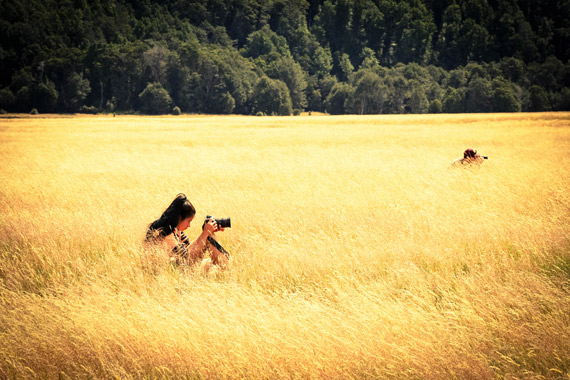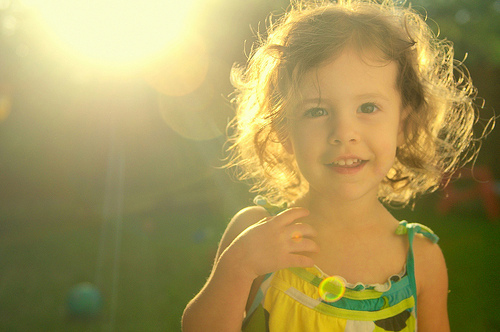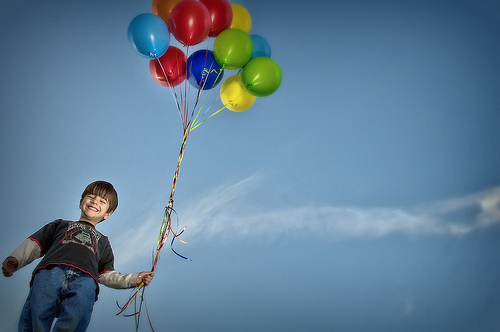The bottom line with any photography learning experience is figuring out how to take great images. That is the result all of us are looking for. If we aren’t actually taking great photos then what’s the point of learning? By putting into practice some simple steps, your photography will improve immediately.

“Lurking in the Grass” captured by Richard Schneider
I remember searching the Internet looking for keys that would help me to get to the next level with my photography. When I found a key, it was very exciting. I was already a proficient photographer, but it would have been great to find an article with keys to get me to the next level. So based on my experience here are steps that will take you to the next level.
1. Get in Closer
So many amateur photographers think that a zoom lens is the ultimate accessory for their camera. That’s a total misnomer. The most important accessory to any photographer is their feet. Unless you’re in a game park or zoo where getting closer to the animals may get you eaten, using your feet is essential. You will see more of the subject and the image will probably be of a better quality. As you move in toward the subject you’ll find yourself framing the scene or person with far more attention to the details.

“What are you looking at!” captured by PictureSocial member Mandeep Singh Shah
2. Exclude Clutter
By getting in closer you will probably exclude a bunch of clutter that you’d not usually remove from your images. There is a bunch of stuff in any scene that you will not want to see in a few years time when looking at the memories. Coke cans, microwaves, and the kitchen sink—all elements that were not important to you when you shot the image. By carefully looking at the scene you will find things that shouldn’t be there. Remove them or change your viewpoint so that they are no longer in the image.

“Ol’ Woody at Tenby Point” captured by PictureSocial member Jim Worrall
3. Watch the Edges of Your Frame
By giving careful consideration to the whole image—especially the edges—you will see a significant improvement to your photos. Because we are so focused on the child, vehicle, or other chosen subject, which on most occasions is placed in the center of the image (not good), we don’t give attention to the edges. It’s only after the shoot that we ask the question, why did I include the extraneous items that really have no relevance to the image? So watch what encroaches on your scene before pressing the shutter button.
4. Choose a Clear Focal Point or Subject
The most important element of any image is the focal point or subject. This is the reason you are taking the image. If you are photographing your child’s birthday party then make him or her the focal point. Get in closer so the viewer can see what the photo is all about. The subject should always shout out, “I am the center of attention.” You should never be in doubt as to what or who the subject is.

“The Princess and the Sun” captured by Lime Fly Photography
5. Change Your Angle
By simply doing this one step you will see an immediate improvement to your photos. Start by thinking outside the box. Don’t stand in front of the subject. Walk around and look at the possibilities. Get down low and look up at the subject. Move a few steps to your left or right. Climb up higher than the subject and look down. Whatever you do don’t stand in front of the subject. Think differently.

“Oscar Is 5 Years Old” captured by Lime Fly Photography
6. Practice, Practice, Practice
Huh? You may think, “This isn’t something I can do to improve my photos.” Yup, it sure is! By going out and practicing the first five steps regularly and consistently you are going to become an above average photographer. In any activity or hobby, the more you practice the better you become. So get out and shoot images—lots of them—while thinking about the other five steps.
Here’s a little bonus exercise. Take an object or subject and shoot it in 100 different ways. Sound difficult? It sure is. But when you have exhausted all your ideas and have only taken 71 images, take a look at them and you will find that there are several that are really great that you wouldn’t have shot if you had only taken 5 or 10. Happy shooting!
About the Author:
Wayne Turner has been teaching photography for 25 years and has written three books on photography. He has produced 21 Steps to Perfect Photos; a program of learner-based training using outcomes based education.
Go to full article: Better Photos in 6 Simple Steps
What are your thoughts on this article? Join the discussion on Facebook
Article from: PictureCorrect